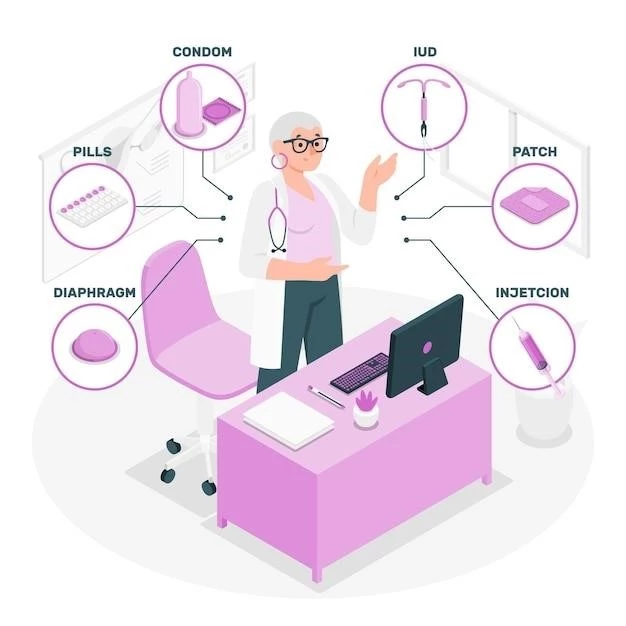Introduction to Potter Disease Type 1
Potter disease type 1 is a rare condition caused by autosomal recessive polycystic kidney disease (ARPKD)٫ affecting about 1 in 16٫000 infants. It leads to kidney cysts formation.
Potter syndrome, also known as Potter disease, is a fatal congenital disorder characterized by physical changes in neonates due to oligohydramnios caused by kidney issues. It leads to respiratory distress due to pulmonary hypoplasia.
Overview of Potter Syndrome
Potter syndrome is a fatal congenital disorder characterized by physical changes in neonates due to oligohydramnios from kidney issues, particularly renal agenesis and impairment.
Autosomal Recessive Polycystic Kidney Disease (ARPKD)
Autosomal Recessive Polycystic Kidney Disease (ARPKD) is the leading cause of Potter Disease Type 1٫ affecting about 1 in 16٫000 infants worldwide. This genetic condition results in the formation of cysts in the kidneys٫ leading to severe complications.
Symptoms and Clinical Presentation
Neonates with Potter Disease Type 1 typically present with physical changes due to renal agenesis and oligohydramnios, leading to pulmonary hypoplasia and respiratory distress.
Polycystic Kidney Disease in Type 1
Polycystic Kidney Disease is a defining characteristic of Potter Disease Type 1, where cysts develop in the kidneys due to genetic factors, impacting kidney function and leading to severe complications.
Diagnosis and Screening
Diagnosing Potter Disease Type 1 involves assessing physical changes in neonates, detecting signs of polycystic kidney disease, and performing diagnostic tests to confirm the condition. Screening often includes evaluating kidney functions and imaging studies.
Diagnostic Tests for Potter Disease Type 1
Diagnosing Potter Disease Type 1 typically involves physical examinations to assess physical changes in neonates٫ imaging studies like ultrasounds to detect kidney anomalies٫ genetic testing to identify the presence of autosomal recessive polycystic kidney disease (ARPKD)٫ and renal function tests to evaluate kidney health and confirm the condition. Early and accurate diagnosis is crucial for appropriate management.

Treatment Options
Treatment for Potter Disease Type 1 focuses on managing complications like respiratory distress, addressing kidney function through supportive care, and potential interventions to improve quality of life.
Management Strategies for ARPKD
Managing Potter Disease Type 1٫ primarily caused by ARPKD٫ involves a multidisciplinary approach focusing on renal function support٫ respiratory distress management٫ possible surgical interventions٫ and ongoing monitoring to address complications and enhance the quality of life for affected individuals.
Prognosis and Complications
Understanding the long-term prognosis and complications of Potter Disease Type 1, particularly the respiratory distress in neonates, is crucial for managing the condition effectively and improving outcomes.
Respiratory Distress in Neonates with Potter Syndrome
Respiratory distress in neonates with Potter Syndrome is a critical complication arising from pulmonary hypoplasia, a result of oligohydramnios and impaired renal function. Early recognition and intervention are essential to manage this life-threatening condition effectively.
Prevention Strategies
Genetic counseling is essential for families at risk of Potter Disease Type 1 due to autosomal recessive polycystic kidney disease. Understanding inheritance patterns and seeking preconception genetic testing can help in family planning and early intervention.
Genetic Counseling for Families
Genetic counseling is vital for families at risk of Potter Disease Type 1, providing insights into inheritance patterns and preconception genetic testing to guide family planning decisions and potential interventions.
Research and Advancements
Stay informed about current studies on Potter Disease Type 1, particularly focusing on advancements in treatments, genetic factors, and diagnosis methods to improve patient outcomes and quality of life.
Current Studies on Potter Disease Type 1
Stay informed about ongoing research on Potter Disease Type 1, focusing on genetic factors, potential treatments, and advancements in diagnostic techniques to improve patient care and outcomes.
Supporting Resources
Explore organizations dedicated to raising awareness about Potter Disease Type 1 and providing support for individuals and families affected by this rare condition.
Organizations for Potter Syndrome Awareness
Join organizations dedicated to raising awareness about Potter Disease Type 1٫ offering support٫ resources٫ and advocacy for individuals and families impacted by this rare genetic condition.
Coping Mechanisms and Support
Emotional support for families dealing with Potter Disease Type 1 is crucial. Connecting with support groups and counseling can help navigate the challenges and uncertainties associated with the condition.
Emotional Support for Families
Families dealing with Potter Disease Type 1 can benefit from emotional support services, counseling, and connecting with other families facing similar challenges. Support groups and mental health professionals can provide guidance and help cope with the emotional toll of the condition.
Case Studies and Success Stories
Instances of surviving Potter Syndrome provide hope and insights into potential treatments and management strategies. Understanding these stories can offer support and guidance to families facing similar challenges.
Instances of Surviving Potter Syndrome
Understanding instances where individuals have survived Potter Syndrome offers hope and inspiration to those affected by the condition. These cases provide valuable insights into potential treatments and highlight the resilience and strength of individuals facing this challenging diagnosis.
Understanding the genetic factors and inheritance patterns of Potter Disease Type 1٫ such as autosomal recessive polycystic kidney disease (ARPKD)٫ is crucial for informed family planning and genetic counseling.

Genetic Factors and Inheritance
Understanding the genetic factors and inheritance patterns of Potter Disease Type 1, such as autosomal recessive polycystic kidney disease (ARPKD), is crucial for informed family planning and genetic counseling.
Impact on Quality of Life
Understanding the long-term effects of Potter Disease Type 1 on individuals’ quality of life is essential for providing comprehensive care and support tailored to their needs. It is crucial to address the physical, emotional, and social implications of the condition to enhance overall well-being.
Long-Term Effects on Individuals
Understanding the long-term effects of Potter Disease Type 1 on individuals is crucial as it significantly impacts their quality of life. Managing these effects requires a comprehensive approach to address both physical and emotional well-being, enhancing overall health outcomes and coping strategies.
Global Prevalence of Potter Disease Type 1
The frequency of Potter Disease Type 1, caused by autosomal recessive polycystic kidney disease (ARPKD), is estimated to occur in about 1 in 16,000 infants globally. Understanding its global prevalence is essential for early detection and management.
Frequency of Potter Syndrome Worldwide
Potter Disease Type 1, often caused by autosomal recessive polycystic kidney disease (ARPKD), has a global occurrence of approximately 1 in 16,000 infants. Understanding the prevalence worldwide aids in early diagnosis and management.
Educational Campaigns and Awareness
Promoting knowledge about Potter Disease Type 1 is essential to facilitate early detection, improve patient outcomes, and raise awareness about this rare genetic condition. Educational campaigns play a crucial role in aiding families and healthcare professionals in understanding the disease and its implications.
Promoting Knowledge about Potter Disease Type 1
Increasing awareness about Potter Disease Type 1 through educational campaigns is crucial for early detection and effective management of this rare genetic condition. Educating the public, healthcare professionals, and families can lead to improved outcomes and support for those affected by the disease.
Conclusion and Final Thoughts
Understanding the global prevalence of Potter Disease Type 1 and promoting awareness through educational campaigns are crucial steps in enhancing early detection, improved outcomes, and support for individuals and families affected by this rare genetic condition. By increasing knowledge and focusing on genetic factors, inheritance patterns, and long-term effects, healthcare professionals and support organizations can provide comprehensive care and empower individuals to manage the challenges associated with Potter Disease Type 1.
